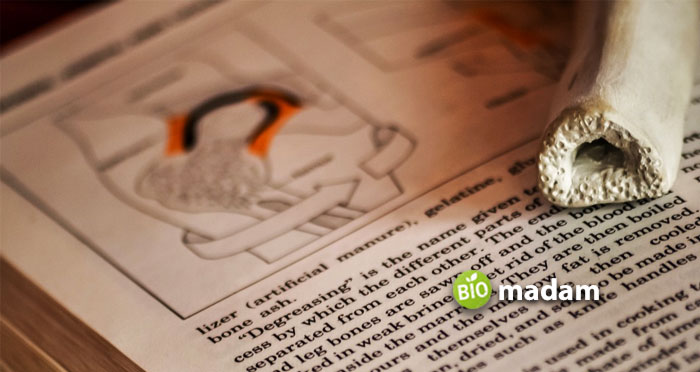There is no question that writing quality papers are essential for success in any field of study. However, for health specialists, writing high-quality papers is especially important. Not only do they need to demonstrate their knowledge and understanding of the topic at hand, but they also need to show that they can communicate this information clearly and concisely.
This can be a daunting task, but with a little bit of effort, it can be done. Here are seven tips for health specialists who want to write high-quality papers.
Consider a Ghostwriter
If you are struggling to write a high-quality paper, you may want to consider hiring a ghostwriter. A ghostwriter is a professional writer who will help you to develop and write your paper, and there is a niche of medical ghostwriters who have expertise and experience in writing papers for health specialists. This option is especially beneficial if you have a busy schedule and do not have the time to write the paper yourself, if you have difficulty getting started, or if you are not sure how to structure your paper.
However, make sure to choose a reputable ghostwriter who has experience in writing papers for health specialists.
Choose a topic that you are Passionate About

One of the best ways to write a high-quality paper is to choose a topic that you are passionate about. This will give you the motivation to do the necessary research and to put forth your best effort. It is also important to choose a topic that is relevant to your field of study. This will ensure that your paper is of interest to those who will be reading it.
For example, if you are a health specialist who is passionate about nutrition, you might want to write a paper on the importance of good nutrition in maintaining health. Alternatively, if you are interested in the role of exercise in preventing disease, you might want to write a paper on the benefits of physical activity.
Do your Research
Once you have chosen a topic, it is time to do your research. This is one of the most important steps in writing a high-quality paper. Make sure to use reputable sources and to take accurate notes. It is also important to critically evaluate the information that you find. This will help you to identify any bias or errors in the data.
On the other hand, if you are having difficulty finding information, you may want to consider hiring a research assistant. A research assistant can help you to locate the necessary information and can also guide how to critically evaluate it.
Get Organized
Before you begin writing your paper, it is important to get organized. This means creating an outline of what you want to say and the order in which you want to say it. Your outline should include an introduction, body, and conclusion.
The introduction should provide background information on your topic and explain why it is important. The body of your paper should present your argument and evidence to support it. The conclusion should summarize your argument and reiterate the importance of your topic.
Now, it is time to start writing your paper. Begin by writing a draft. This will help you to get your thoughts down on paper and to organize them logically. It is also important to get feedback on your draft from another health specialist. This will help you to identify any areas that need to be revised.
Use Evidence to Support your Argument
When writing your paper, it is important to use evidence to support your argument. This could include data from research studies, statistics, or quotes from experts in the field. Using evidence will help to make your argument more convincing and will make your paper more credible.
However, make sure that the evidence you use is accurate and up-to-date. Also, be sure to properly cite all of the sources that you use. This will help to avoid plagiarism and will give credit to the authors of the work that you have used.
Additionally, when using data from research studies, it is important to critically evaluate it. This means looking at the study design, the methods used, and the results. This will help you to determine whether or not the study is reliable and whether or not the results apply to your argument.
Edit and Proofread your Paper
Once you have finished writing your paper, it is important to edit and proofread it. This will help to ensure that your paper is free of errors and is well-written. It is also a good idea to have someone else read your paper and provide feedback.
Some of the things you should look for when editing and proofreading your paper include grammar, spelling, and punctuation errors, as well as clarity and flow. Additionally, make sure that your paper is properly formatted and that all of the sources you used are properly cited.
You will also want to make sure that your paper is free of plagiarism. To do this, you can use a plagiarism checker such as Copyscape.
Finally, once you have edited and proofread your paper, it is important to format it according to the guidelines of the journal to which you are submitting it. This includes ensuring that the paper is the correct length, has the correct margins, and is in the correct font.
Submitting and Publishing your Paper

Now that you have written a high-quality paper, it is time to submit it for publication. To do this, you will need to find a journal that is relevant to your topic and that is open to submissions.
When submitting your paper, you will need to provide a cover letter, as well as the paper itself. The cover letter should explain why you are submitting the paper to the journal and what you hope to achieve by doing so.
If your paper is accepted for publication, it will likely undergo a peer-review process. This means that it will be evaluated by other experts in the field to ensure that it is of high quality. Once your paper has been accepted, it will be published in the journal and will be available for others to read.
Now that you know how to write a high-quality paper, it is time to get started. The seven tips provided will help you to turn your knowledge into an impressive paper that is sure to impress your peers. Be sure to edit and proofread your paper before submitting it for publication.

Hi, they call me Jenna, and I am also known for achieving a gold medal during my Ph.D. in science life. I always had a dream to educate people through my utmost writing hobby. So, I chose this blogging path, and Biomadam gave me this opportunity to present for them. I now stand to entertain you. Continue reading my articles & discuss if you’ve any confusion through the comment section below.

